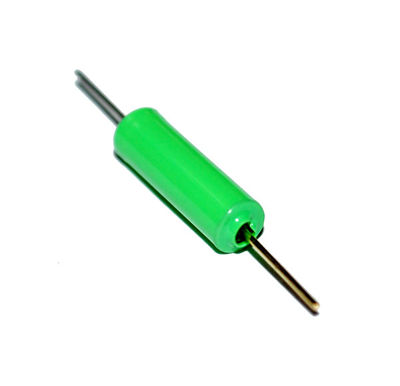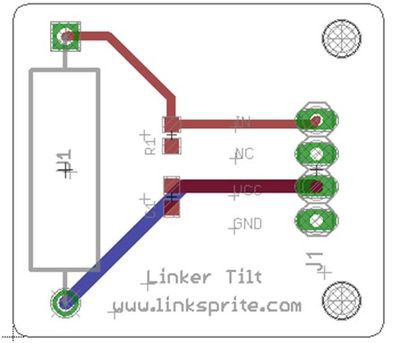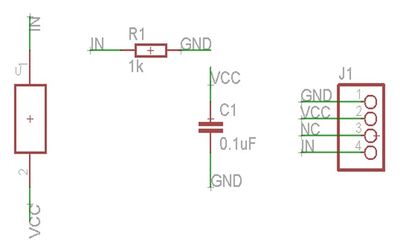Tilt Sensor
Contents
Overview
A tilt sensor is a simplified accelerometer. It is a switch that can detect basic motion/orientation. The metal tube has a little metal ball that rolls around in it. When it is tilted upright, the ball rolls onto the contacts sticking out of end and shorts them together.
Shown in Figure 6.1 is the tile sensor SW-460D. The electric characteristics of this sensor are listed in Table 6.1. The minimum tilt angel of this sensor is 2-5°.
Specifications
Specificaitons of Quality
- Working voltage: 3.3/5V DC
- Interface types: Digital interface
- 2.54mm general interface
- Module conduction angle:2~5°
Module specifications
| Items | Min |
|---|---|
| PCB Size | 2.5cm*2.7cm |
| Interface | 2.54mm pitch pin header |
| IO structure | IN, NC, VCC, GND |
| VCC | 3/5V |
Tilt Sensor PCB
Characteristics
| Model | Voltage | Current | Conduction Time | Path Resistance | Open Circuit Resistance | Resistance To Temperature |
|---|---|---|---|---|---|---|
| SW-460D | 12V | 5mA | 20mS | >10M omh | 10M omh | 100°C |
Schematic
Programming
The program below uses the tilt sensor to control the LED.
Sample code:
<syntaxhighlight lang="c">
int ledPin = 13; // Connect LED to pin 13 int switcher = 3; // Connect Tilt sensor to Pin3
void setup() {
pinMode(ledPin, OUTPUT); // Set digital pin 13 to output mode pinMode(switcher, INPUT); // Set digital pin 3 to input mode
} void loop() {
if(digitalRead(switcher)==HIGH) //Read sensor value
{
digitalWrite(ledPin, HIGH); // Turn on LED when the sensor is tilted
}
else
{
digitalWrite(ledPin, LOW); // Turn off LED when the sensor is not triggered
}
}
</syntaxhighlight>


